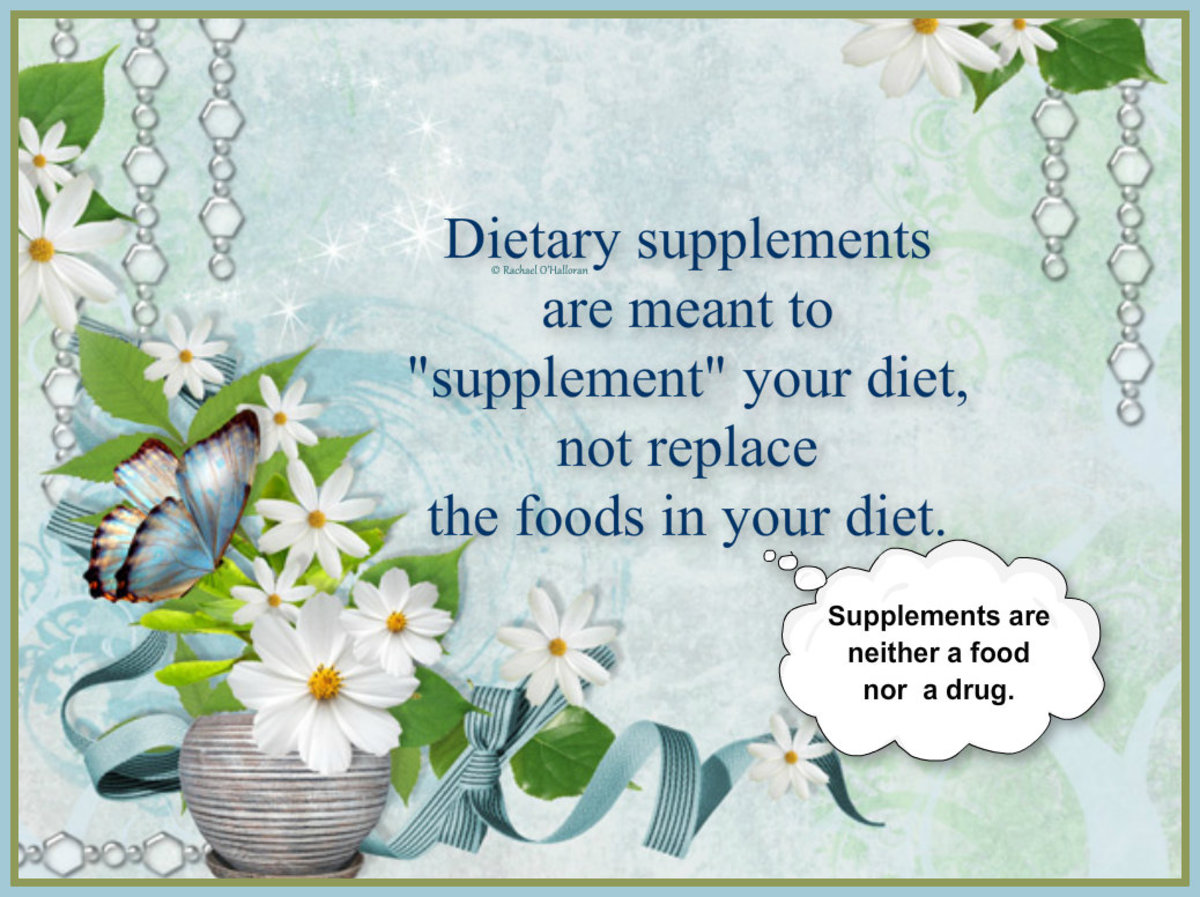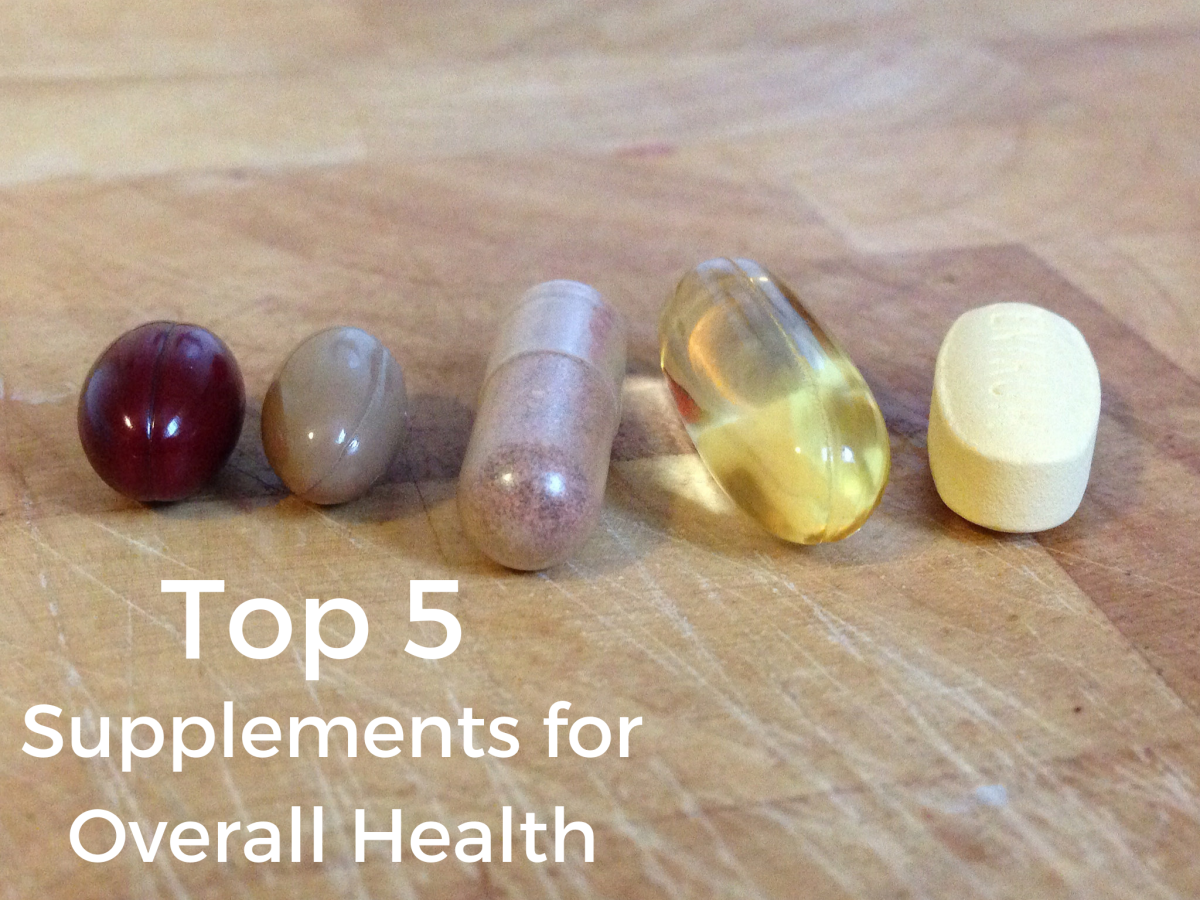Vitamins And Supplements In Your Diet Plan
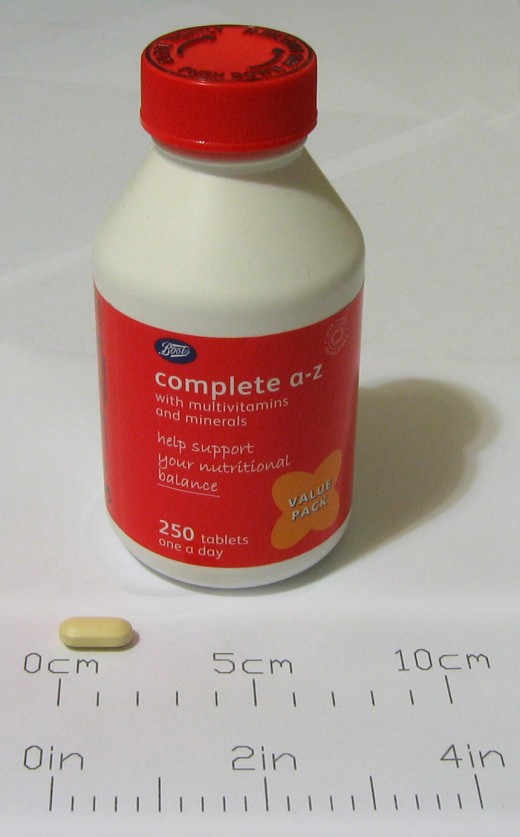

Advertising Vitamins, Supplements and Herbal Products
Published November 4, 2013 by Mary McShane
Do you take vitamins and supplements every day? If so, you are in the majority of the population.
Search trends on Google and other websites show that vitamins and supplements rival for the top ten advertising slot right under weight loss and diet products. It is a big money making business and as long as people think they need a supplement, the companies will have no problem selling their products.
Many people who take dietary supplements are not only taking vitamins and minerals. Herbal teas, combinations of enzymes, botanical blends and certain amino acids are also marketed under the same category. Because of this diversity, dietary supplements have become almost a fad where advertising influences people, especially with testimonials.
If the advertisements sound too good to be true, chances are the claims of the product have been exaggerated to draw your attention. These companies are in business to make money, after all.
One red flag should be internet websites dedicated to one product and full page advertisements in mainstream periodicals. If the company provides countless testimonials, goes into excessive detail about how they developed the product, repeats several key phrases many times throughout the ad, and has many opportunities to "Click here" - these are considered hard sell tactics and you should be wary.
Take note of the credentials attached to each name in the testimonials. Are these medical professionals, actual users, or quotes copied from product outlet sites like Amazon or Ebay? If most of them are medical professionals, Google their name and see what comes up. Most of the time, the names are pretty generic (Smith, Jones, Walker, Thompson, etc.) and you won't be able to distinguish them from your search results.


Do You Really "Need" A Supplement?
Many companies combine several supplements and market them as Proprietary Blend or Proprietary Brand. Although most products list what is inside their capsule or tablet, they don't have to disclose how much of each vitamin or mineral is in their Brand. If they gave the exact amounts, they'd be giving away their trade secret, making their product no longer Proprietary.
No matter which supplement you choose to take, you need to make sure your body actually needs the supplement and you can only do that by having a blood test.
If you are relatively healthy, taking vitamin and mineral supplements that have 100% or less than the daily recommended dose are fairly safe. This is noted as Dietary Reference Intake (DRI or Recommended Daily Value (RDV) on the label. If you like high potency supplements for any reason, you should avoid labels that claim "mega-dose" of any ingredient, especially if it has added enzymes, botanicals or amino acids.
Read the labels carefully. If the label says the product has, for example, 5000 times the RDV, this should be approached with extreme caution.
For the most part, your diet should provide you with what your body needs. Supplementation is often prescribed by a physician when blood levels are low or when a patient presents with symptoms of deficiency, for example, rickets.
Vegetarians may take supplements to make sure their diet provides enough vitamin B-12, vitamin D, calcium, iron, and zinc.
Women who have heavy menstrual bleeding will benefit from supplemental iron due to excessive blood loss.
People who can't or won't consume dairy products and who limit their exposure to the sun for any reason may benefit from supplemental Vitamin D. A blood test should be performed to get a baseline so that you get an adequate amount of the vitamin and insure against overdose.
People who are dieting for weight loss or are on restrictive diets - cardiac, low fat, gluten free - can benefit from supplementation because they cannot get all the vitamins and nutrients they need from their diet.
Infants and children who are breastfed and/or consume less than a quart of milk daily should be taking added Vitamin D to prevent fractures and bone density problems.
Older adults and post menopausal women can benefit from Vitamin B-12 and Vitamin D to keep their bones healthy.
Anyone who has food allergies (gluten intolerance, lactose intolerant, for example) will not be able to get all the nutrients they need from their diet. They will need a good multivitamin and other supplements as prescribed by a physician.
Making Choices
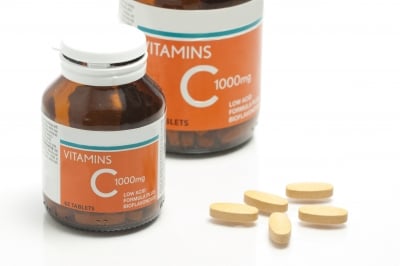

Following Label Directions
How do you know how much to take?
If you read label directions, you have to pay close attention to how much of the ingredient is actually in each tablet or capsule. The front label of the bottle may say 500 milligrams, but the back of the bottle may tell you that you have to take five tablets to get that 500 milligrams. If the bottle was purchased at a bargain price, you have to consider how much of a bargain it really was if you have to take so many tablets to get the desired amount.
Sometimes it is better to buy a supplement that says each tablet or capsule has the specified amount in "each" tablet or capsule than it is to buy bottles where you have to take several to get the full dose.
Some people take vitamins and supplements without taking into consideration their body size, their weight, their body type and their diet. If a person who does not follow a healthy diet, weighs 300 pounds and is short of stature, they are not going to benefit from the same dose that a person who follows a healthy diet, weighs 150 pounds and is tall.
Dosages on bottles are recommended doses for the average person and more often than not, the product was tested on a group of people who were considered "normal."
"Normal" is a broad term in any venue but in medicine, normal is rarely found. However for purposes of this hub, normal means a person who eats a healthy balanced diet, is of good weight commensurate to their size, performs moderate exercise and has no underlying health problems, or vitamin and/or mineral deficiencies.
if the typical test subject was 150 pounds at 5 foot 6 inches, and you are not, then maybe that one pill or capsule is not the correct dosage for you.
You might be one of the many people who have a deficiency in a particular vitamin or supplement and you are following the exact label dosage directions. It is entirely possible that you are not even putting a dent into correcting your deficiency because the dosage on the label is meant as a supplement to the diet of a "normal" person.
Buying Vitamins and Supplements
If you need a daily vitamin and/or supplement in addition to your diet, how do you decide which brand to buy?
In 1994, the US Congress passed the Dietary Supplement Health and Education Act (DSHEA), which classifies supplements as a food, not a drug. Because supplements do not go through approval by the FDA before being sold to the public, the company assumes responsibility that their product is safe and in compliance with the 2007 Current Good Manufacturing Practices Act.
Do your homework before choosing a dietary supplement so you can make educated informed decisions.
Why Most People Take Supplements
If your diet is not healthy, all the supplements in the world are not going to fix it. Supplements are not guaranteed to protect you from diseases, nor are they meant to replace certain parts of your diet.
People are under the misconception that if they take a supplement, they don't have to follow a healthy diet. The truth is that supplements work in conjunction with a healthy diet. You should always choose food first, and if it is not available in your region or is out of season, then choose a supplement.
Water Soluble and Fat Soluble Vitamins
You can read about water soluble vitamins here.
You can read about fat soluble vitamins here.
High doses and how long you've been taking certain supplements can cause toxic effects so that you MAY experience hair loss, fatigue, kidney stones, liver damage, nerve damage, or chronic diarrhea. At the very extreme, they can cause death.
When in doubt, consult your health care provider. Don't rely on the internet as your only source of information.
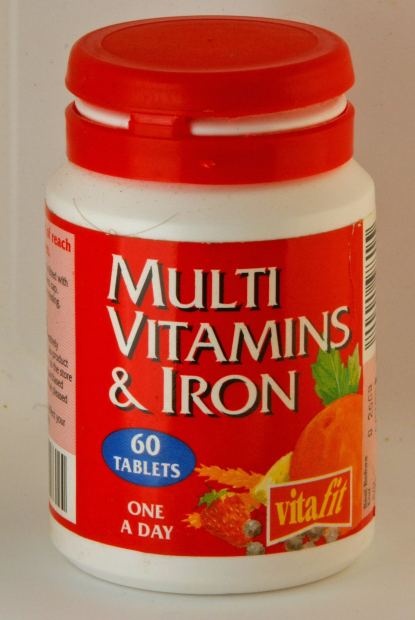

Important Links
- Drug Interactions
Drug Interaction Checker. Check for drug-drug and drug-food interactions - Dietary Supplement Label Database (DSLD)
Dietary Supplement Label Database, brands, ingredients, and references. Background image of Cassia marilandica adapted from photograph: Robert H. Mohlenbrock @ USDA-NRCS PLANTS Database/USDA SCS
Drug Interaction
Dietary supplements do not come without risk. They are not FDA regulated and in every case, you should approach each one with caution, given your medical history.
If you replace a prescription drug with a daily supplement, you must be sure that you are getting the same benefit from the supplement as you would from the prescription medication, for example dosage amounts. In some cases, the prescription medication will provide the best benefit; in other cases, the supplement will be best.
But if you are one of the growing population who wants to cut down on how many prescription drugs they take every day, replacing them with supplements can be very chancy if not done under medical supervision.
For example, some people replace depression medications like Prozac and Zoloft, with St. John's Wort or Gingko Biloba. While supplements can be effective for the majority, it may not be effective for you. We are all different and we all need different dosages for our bodies to benefit. The supplement may not perform as well for you mixed in with your other medications or be cost effective. If the dosage of the supplement gets very high, then it might be better to stay with the prescription strength.
Replacing the prescription drug and adjusting dosages of the supplement can become a safety issue and it can take a long time to get the dosage right for you. Factor in your other health conditions, supplements can influence the safety and performance of your other medications, even over-the-counter products like NSAIDS and probiotics.
People taking blood thinners like Coumadin or baby aspirin may experience internal bleeding if they also take Vitamin E or Gingko Biloba. Other supplements combined with medication can either reduce their effectiveness or even be life threatening.
You should always provide each of your doctors with a list of your vitamins and supplements along with your medications. Keep the list current by updating it each time you have a doctor's visit.
If you changed the dosage on any of your supplements or over-the-counter medications, be sure to bring it to your doctor's attention, especially if you are experiencing a medical problem as the reason for your visit. A simple change in dosage can be the cause or contribute to the cause of something new that is going on with your body.
If you are having a scheduled surgery, your doctor may tell you to hold off on your daily supplements as well as certain medications. This is usually a precaution against excessive or internal bleeding.
For new alerts and safety information about your vitamins and supplements, see the Food and Drug Administration (FDA) website.
Thank you for visiting my hub. Your comments are appreciated.
© Mary McShane
Considering only information you did not know before reading this hub, how would you rate the hub?
© 2013 Mary McShane

